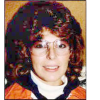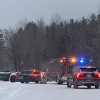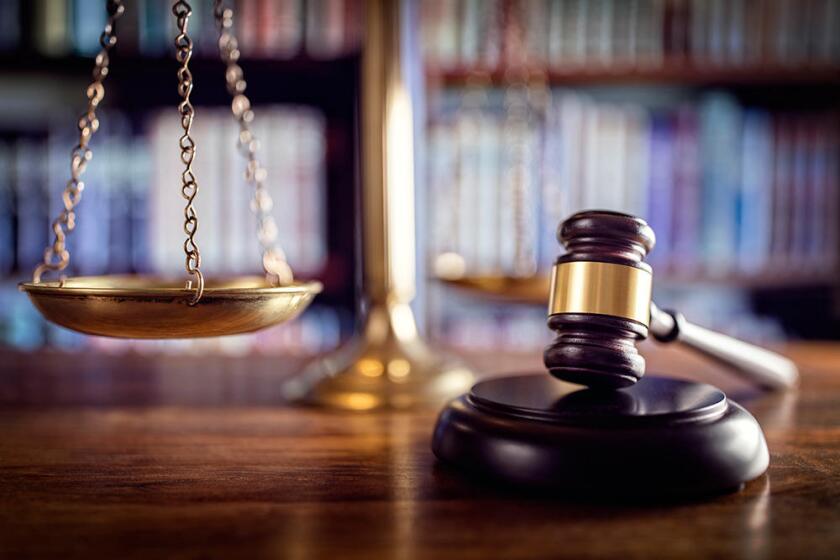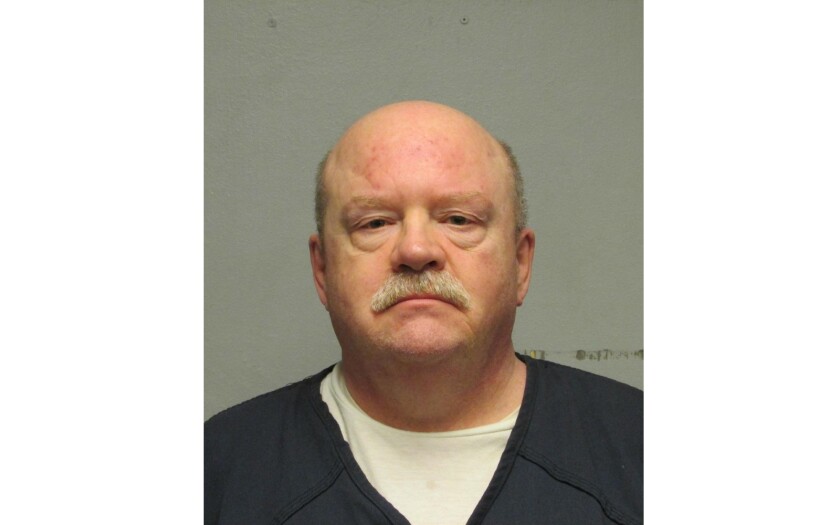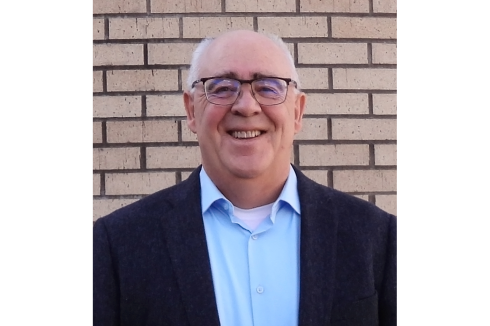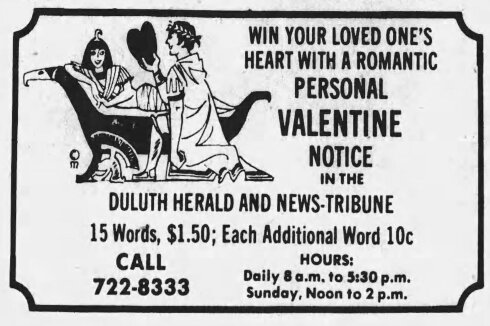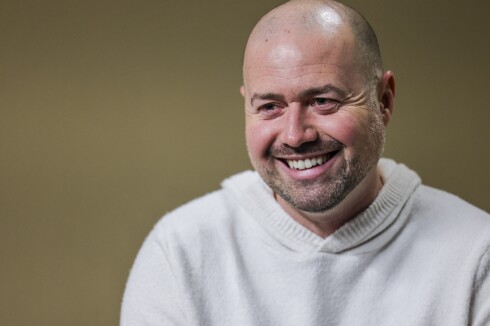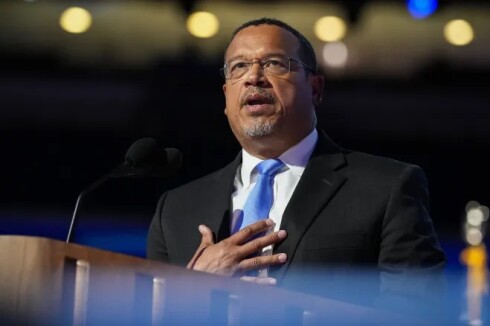VIRGINIA — Returning to the witness stand more than two years later, the man blamed by defense attorneys for a decades-old killing told jurors he loved the victim and did not commit the crime.
“Did you kill Nancy Daugherty?” St. Louis County prosecutor Chris Florey asked Brian Evenson after more than two hours of questioning.
ADVERTISEMENT
“No,” Evenson responded emphatically.
Evenson, of Climax, Minnesota, is without doubt the most central witness in the case against Michael Allan Carbo Jr., who stands accused of raping and killing Daugherty at her Chisholm home in 1986. A friend, co-worker and former lover of the victim, Evenson was the last person otherwise known to see Daugherty alive and was the first person to discover her body.
He admitted to having strong feelings for the victim and making comments that the defense has sought to use as evidence of his guilt — but he maintained that he was content to simply be friends with Daugherty and would not resort to violence.
“I still loved her,” Evenson said. “I wanted her to be happy. I wasn’t going to push her into anything.”
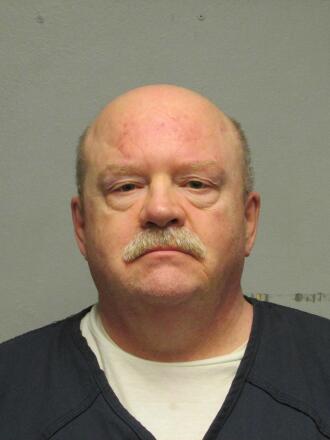
Carbo, 56, of Chisholm, is standing trial for the second time after the Minnesota Supreme Court overturned his August 2022 conviction for first-degree murder, ruling he was improperly barred from presenting the alternative perpetrator defense.
Daugherty’s case remained unsolved for decades, despite extensive investigation and DNA testing of possible suspects over the years. In 2020 genetic research produced a new lead and Carbo was confirmed to be a match for semen found at the scene, as well as scrapings under the victim’s fingernails.
Witness describes complicated relationship
Evenson, who served with Daugherty on the local ambulance service, had been living in Appleton, Wisconsin, and was visiting from out of town when she was killed. He told jurors they visited on the night of July 15 and went out for a few drinks before he went to his parents' home.
ADVERTISEMENT
The next morning, Evenson said, he planned to help Daugherty with her move to the Twin Cities to study for a paramedic career. But she did not respond to phone calls or knocks at the door. Uncharacteristically, he said, both doors were locked and her bedroom shades were closed.
After several hours, Evenson, joined by a police officer and two neighbors, gained entry to the house, where he was the first to enter her bedroom. He said he saw her fingers sticking out from under the covers. He grabbed them and discovered they were cold and stiff before removing the covers.
“She had just this horrible look of fright on her face,” Evenson testified. “I thought, what a horrible death.”
Other clues were left at the scene. Daugherty’s keys were found outside, near a matted-down area of grass. There was also vomit in the yard.
Carbo, then 18, was not known to Daugherty or her family and was never a suspect until decades later. But defense attorneys note Evenson was a key person of interest from the early stages.
He acknowledged having engaged in a sexual relationship with Daugherty between 1982 and 1984, while she was married. And he admitted to sending her numerous letters over the years, often expressing a desire to be together, even though she rarely responded.
In one letter, he admitted writing: “There are times that I think about you that I get so mad I could wring your neck."
ADVERTISEMENT
Evenson told jurors Thursday that was not a threat. They remained friends, he said, but “in any interpersonal relationship there’s going to be clashes.”
He also acknowledged telling then-Chisholm Police Chief Scott Erickson in a 1998 interview: "I've often wondered, `Jeez, did I wake up in the middle of the night, drive over here and kill her, go back to bed and not know it?'"
The witness said that wasn’t a confession, but merely a “casual conversation between two friends.”
“I meant nothing by it,” Evenson said. “He apparently read something into it, but there was nothing there. … He asked a question. I knew the crime was unsolved; someone did it. I knew I didn’t, but it was just a thought in my head.”
He maintained he never had any serious consideration that he was the killer.
“I was at peace with myself,” he said in discussing the 1998 interview. “I could rest easy. I didn’t do anything wrong.”
Defense blames Evenson's 'jealousy'
Evenson spent more than two hours on the witness stand, but court concluded for the day without the defense having an opportunity to cross-examine him. That will occur Friday morning.
ADVERTISEMENT
However, earlier in the day, defense attorney J.D. Schmid walked jurors through a different version of events, saying one man had a motive to kill Daugherty and the other did not.
“The evidence will show that Mr. Carbo had sex with Nancy Daugherty and that is it,” Schmid said in his opening statement. “The evidence about who killed Nancy Daugherty points to Brian Evenson.”
Schmid began his statement by reading Evenson’s 1998 quote. He contended that Daugherty’s decision to end their affair “tore him up inside” and Evenson “wanted her to love him the same way he loved her.”
“The evidence is going to show he went back to the house,” Schmid said, “and those two to three years of jealousy, frustration and anger boiled over to the point that he killed her, just like he confessed to Chief Erickson.”
Florey, though, told jurors the state’s case is “based on common sense and science.” He said the evidence would show the sexual assault and killing were intertwined, and not separate evidence, with Carbo leaving his DNA several places in the residence.
The prosecutor also noted the defendant denied involvement when first interviewed in 2020, only to change his explanation when confronted by the forensic evidence.
“It’s not your job just to look at cherry-picked evidence presented out of context,” Florey told jurors. “It is our job to look at the totality of the evidence.”
ADVERTISEMENT
Daugherty, 38, was a mother of two. Her daughter, Gina Haggard, told jurors her mother loved skiing, playing softball and soaking up the summer sun. She "found her passion" with the ambulance service, Haggard said.
A jury of eight men and seven women, including three alternates, have been selected to hear the case. The trial is expected to last roughly two weeks.






